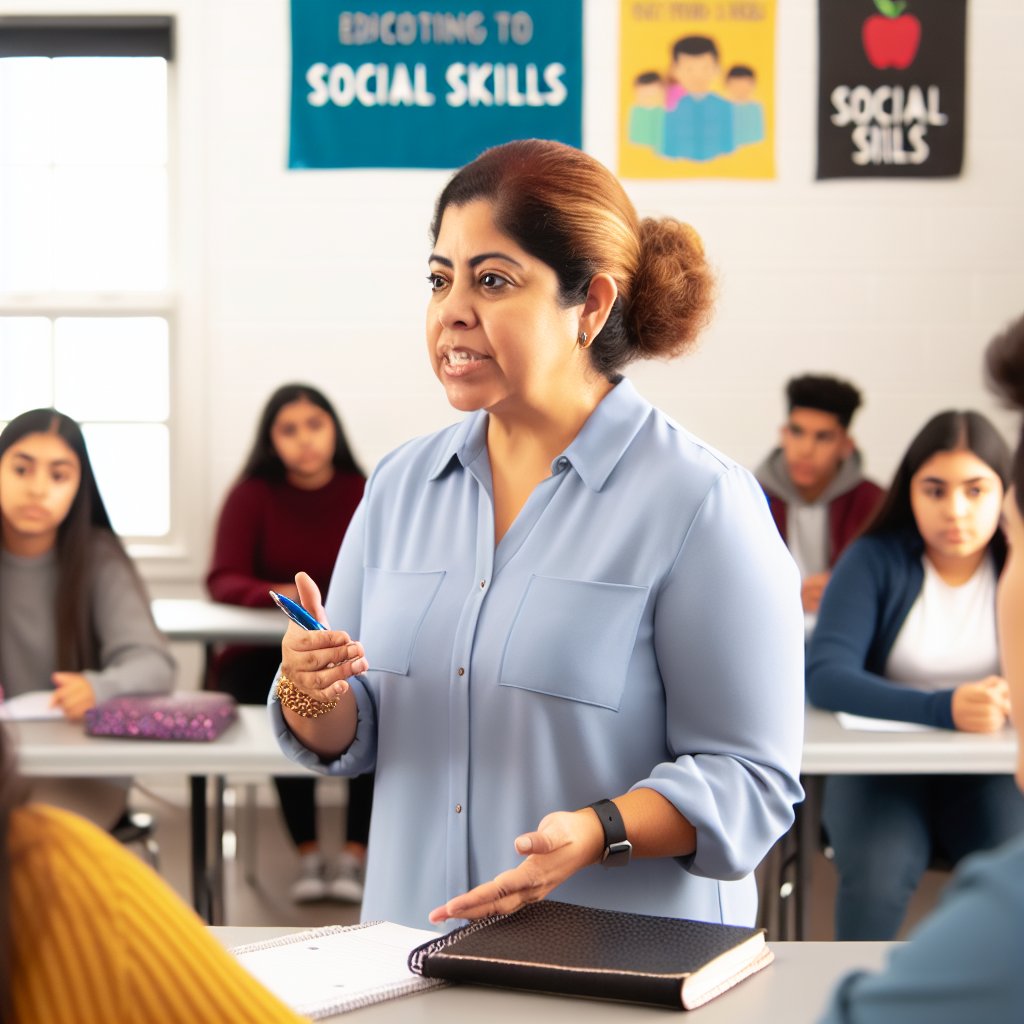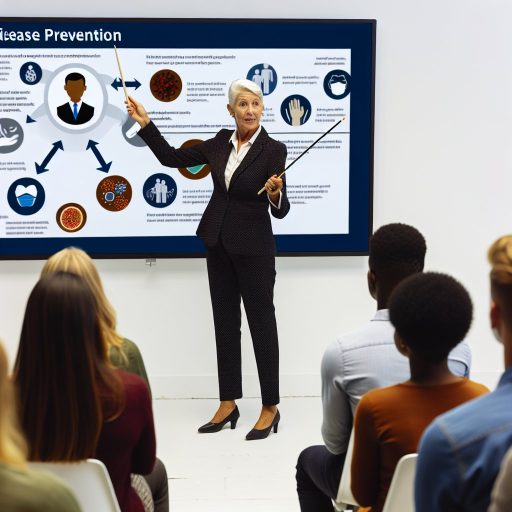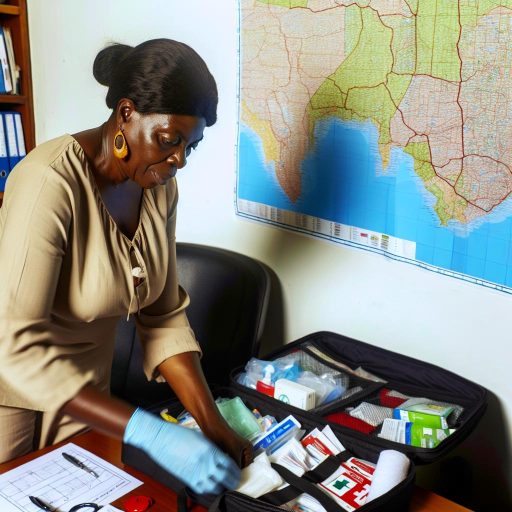Social skills are crucial in life skills instruction as they impact personal relationships and career success.
These skills include communication, collaboration, empathy, and interpersonal skills.
In personal life, social skills help in building strong relationships and resolving conflicts effectively.
In professional settings, social skills are essential for networking, teamwork, leadership, and career advancement.
By addressing social skills in life skills instruction, individuals can enhance their overall quality of life.
Furthermore, these skills are transferable across various settings, making them highly valuable.
Social skills are the key to successful personal and professional development.
Defining Social Skills
Social skills refer to the abilities to interact with others effectively in various social situations.
These skills are crucial for success in both personal and professional aspects of life.
Importance of Social Skills
- Enhance communication and relationship-building
- Improve teamwork and collaboration
- Foster empathy and understanding towards others
- Boost self-confidence and self-esteem
Examples of Social Skills
There are various examples of social skills that individuals can develop to navigate social interactions successfully.
Communication
- Active listening
- Effective verbal and non-verbal communication
- Assertiveness
Empathy
- Understanding and sharing others’ feelings
- Showing compassion and kindness
- Being able to see situations from others’ perspectives
Teamwork
- Collaborating with others towards a common goal
- Supporting team members and resolving conflicts
- Recognizing and valuing diverse perspectives within a team
Incorporating these social skills into life skills instruction can significantly benefit individuals in their personal and professional development.
Importance of Social Skills in Life Skills Instruction
In life skills instruction, social skills play a crucial role in the development of individuals in various aspects.
Let’s delve into the significance of social skills in the context of life skills education.
Building Relationships and Effective Communication
Social skills are fundamental in establishing and nurturing relationships with others.
By having strong social skills, individuals can engage in meaningful interactions, build rapport, and foster trust with others.
Effective communication is a key component of social skills, allowing individuals to express themselves clearly, listen actively, and convey their thoughts and emotions effectively.
Enhancing Problem-Solving Abilities and Decision-Making
Social skills are interconnected with problem-solving abilities and decision-making skills.
Individuals with well-developed social skills can collaborate with others, seek input and feedback, and work collectively towards finding solutions to challenges.
By understanding and considering different perspectives, individuals can make informed decisions that take into account the needs and preferences of others.
Social skills are vital in life skills instruction as they contribute to building relationships, enhancing communication, improving problem-solving abilities, and fostering effective decision-making.
Transform Your Career Today
Unlock a personalized career strategy that drives real results. Get tailored advice and a roadmap designed just for you.
Start NowIt is essential to emphasize the development of social skills in life skills education to equip individuals with the necessary tools to navigate social interactions, collaborate effectively, and succeed in various personal and professional contexts.
You Might Also Like: The Future of School Social Work: Trends and Predictions
Incorporating Social Skills in Life Skills Curriculum
When it comes to teaching life skills, incorporating social skills training can greatly benefit students in various ways.
By integrating social skills activities into existing life skills programs, educators can help students develop important interpersonal skills that are essential for success in both academic and real-world settings.
Suggestions for Integration
- Include group projects that require collaboration and communication among students.
- Organize role-playing activities to practice social scenarios and problem-solving skills.
- Utilize peer mentoring programs to foster positive relationships and support among students.
- Encourage students to participate in community service projects to develop empathy and compassion.
- Integrate technology by using social skills apps and online platforms for interactive learning.
Tips for Educators
- Provide clear instructions and expectations for social skills activities.
- Offer opportunities for students to practice active listening and empathetic communication.
- Provide feedback and guidance to help students improve their social skills.
- Model positive social interactions and behaviors for students to emulate.
- Encourage a supportive and inclusive learning environment where students feel comfortable taking risks.
By incorporating social skills training into life skills instruction, educators can equip students with the tools they need to navigate social situations and build strong relationships.
These skills are not only valuable in school but also in future careers and personal relationships.
With intentional planning and implementation, educators can create engaging and effective activities that focus on developing social skills in students.
You Might Also Like: Key Qualities of Effective Disability Services Coordinators
Role of Parents and Caregivers
Parents play a crucial role in the social development of their children.
Here are some ways they can support the teaching of social skills at home:
- Modeling Behavior: Parents should demonstrate positive social interactions in front of their children.
- Encourage Communication: Create an environment where children feel comfortable expressing their thoughts and feelings.
- Set Clear Expectations: Establish rules and boundaries that promote respectful interactions with others.
- Teach Problem-Solving: Help children develop skills to resolve conflicts and navigate social situations effectively.
- Practice Empathy: Encourage children to consider others’ perspectives and feelings in social interactions.
- Provide Opportunities for Socializing: Arrange playdates, outings, and group activities to enhance social skills development.
- Offer Positive Feedback: Praise children for demonstrating good social skills and encourage continued growth in this area.
- Seek Professional Support: If needed, consult with educators, counselors, or therapists for additional guidance in teaching social skills.
- Be Patient and Consistent: Social skills take time to develop, so parents should be patient and provide consistent support and reinforcement.
By actively engaging in their children’s social skills development, parents and caregivers can play a vital role in helping them navigate social interactions effectively and build strong relationships with others.
You Might Also Like: Collaboration Among Residential Counseling Staff

Addressing Social Skills for Individuals with Special Needs
Individuals with special needs encounter unique challenges when it comes to developing social skills.
These challenges can vary depending on the specific needs of the individual, whether they have cognitive, physical, or emotional disabilities.
Unique Challenges Faced by Individuals with Special Needs
- Limited social cues recognition
- Difficulty understanding social norms
- Struggling with communication skills
- Challenges in forming and maintaining friendships
- Behavioral issues that impact social interactions
These challenges can often lead to feelings of isolation and low self-esteem in individuals with special needs.
It is crucial for educators and caregivers to provide the necessary support and tools to help them overcome these obstacles.
Resources and Strategies for Educators and Caregivers
- Implement structured social skills training programs
- Use visual aids to support communication
- Encourage participation in group activities
- Provide opportunities for social interaction
- Practice role-playing scenarios to improve social skills
Additionally, it is essential to create a supportive and inclusive environment where individuals with special needs feel comfortable and accepted.
This can help boost their confidence and encourage social engagement.
Collaboration with parents and other professionals involved in the individual’s care is also crucial in addressing social skills development.
By working together, educators and caregivers can create a comprehensive plan that caters to the specific needs and abilities of the individual.
Transform Your Career Today
Unlock a personalized career strategy that drives real results. Get tailored advice and a roadmap designed just for you.
Start NowAddressing social skills in life skills instruction for individuals with special needs requires patience, empathy, and a tailored approach that takes into account the unique challenges they face.
With the right support and resources, individuals with special needs can develop the necessary social skills to thrive and build meaningful connections with others.
Discover More: Family Support Worker Certification and Licensing
Assessing and Monitoring Social Skills Progress
When it comes to life skills instruction, especially in the area of social skills development, it is essential to assess and monitor progress continually.
This helps individuals to track their growth, identify areas needing improvement, and celebrate achievements along the way.
Methods for Assessing Social Skills Development
- Direct Observation: One of the most effective ways to assess social skills is through direct observation in real-life situations.
- Social Skills Checklist: Utilizing a checklist can help individuals and their instructors identify specific social skills that need improvement.
- Self-Reflection: Encouraging individuals to reflect on their social interactions and behaviors can provide valuable insights into their strengths and weaknesses.
- Peer Feedback: Peer feedback can also be a valuable method for assessing social skills development.
Importance of Ongoing Monitoring and Feedback
- Enhanced Skill Development: Ongoing monitoring and feedback allow for continuous improvement in social skills.
- Increased Confidence: Knowing that progress is being monitored can boost individuals’ confidence in their social skills.
- Accountability: Regular monitoring holds individuals accountable for their social skills development.
- Identification of Challenges: Monitoring progress allows for the early identification of challenges individuals may be facing.
Importance of Social Skills
Social skills are crucial for success.
Addressing them in life skills instruction is essential.
Without these skills, personal relationships suffer.
Effective communication is key in all aspects.
Additionally, social skills are vital for career advancement.
Students must practice these skills continually.
Life skills instruction should focus on developing them.
Social skills are fundamental for growth.
Teachers play a key role in cultivating them.
Addressing social skills in life skills instruction is indispensable.
Additional Resources
Standards and Indicators for Cultural Competence in Social Work …
Supporting Child and Student Social, Emotional, Behavioral, and …




